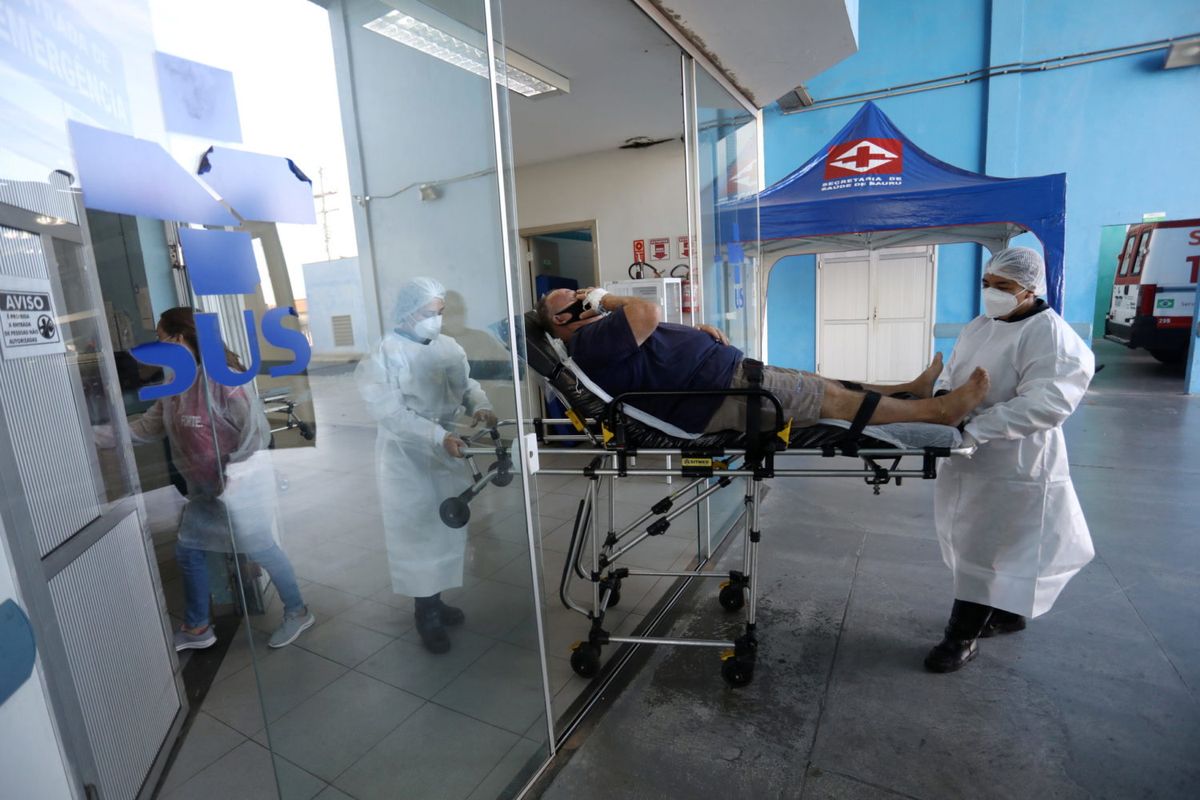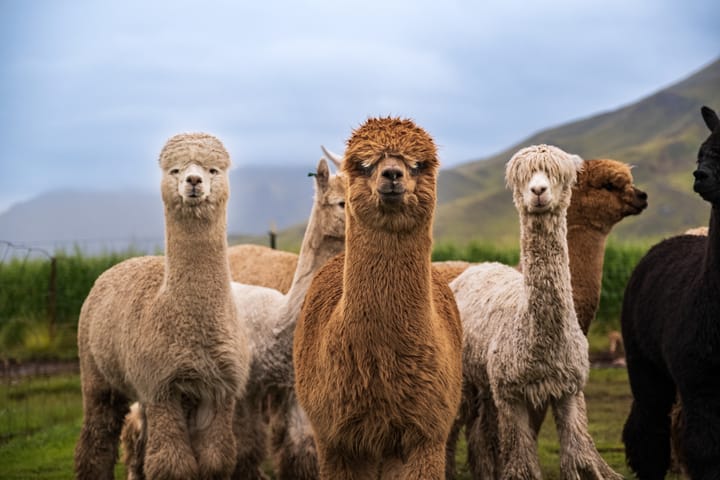Brazil’s P1 variant has the world worried

A few minutes every morning is all you need.
Stay up to date on the world's Headlines and Human Stories. It's fun, it's factual, it's fluff-free.
Brazil has been at the center of scientists’ concerns, as a new variant originating in the country is causing upwards of 3,000 deaths a day, leaving hospitals overwhelmed.
While residents of the United States and other countries where successful vaccination campaigns have been underway for months are beginning to feel some sense of optimism about a possible end to the pandemic, scientists remain concerned about the pace of vaccination in developing countries.
This concern lies in the possibility that mutated strains of COVID-19 might develop in countries where the virus is spreading rapidly. These new strains have the potential to be more transmissible and reduce the efficacy of vaccines.
Brazil has been at the center of scientists’ concerns, as a new variant originating in the country is causing upwards of 3,000 deaths a day, leaving hospitals overwhelmed. Because the Brazilian government has not implemented COVID-19 safety procedures – such as lockdowns, mask mandates and social distancing policies – the country has become the new epicenter of the pandemic.
Brazil’s failed COVID-19 response
Over 378,000 have now died of COVID-19 in Brazil, making the country second to only the US.
Most of the blame for the country’s death toll has been directed at Brazilian President Jair Bolsonaro who, despite the steady increase in deaths and new infections, continues to understate the gravity of the situation.
When discussing the rising death toll at the beginning of April, Bolsonaro told Brazilians, “there’s no use crying over spilled milk.” The Brazilian President has refused to implement lockdowns, despite the daily death count topping 4,000 on several occasions over the past month.
Bolsonaro has been a COVID-19 skeptic since the beginning of the pandemic, referring to the virus as “a little flu,” ignoring social distancing protocols and appearing at large political rallies. The populist president even contracted COVID-19 himself in July 2020. When diagnosed, he claimed to be taking the anti-malaria drug hydroxychloroquine, a drug pushed by former US President Donald Trump and one that studies have found shows no benefits in those who have taken it while hospitalized with the virus.
In March, Bolsonaro celebrated anti-social distancing protests, even though the country recorded 90,000 new cases that same day. “They [the protests] show that the people are alive,” he remarked on broadcasts shared on social media. “We want our freedom, we want the world to respect our constitution.”
P1 variant
The mutation behind the surge of COVID-19 deaths in Brazil is called the P1 variant. This strain of the virus has now been detected in 15 countries in Latin America. In addition to its increased lethality, P1 has been found to be two and a half times more contagious than the original strain and it has quickly become the most common strain of the virus in Brazil.
Researchers in the public health institute Fiocruz have found that the P1 strain continues to mutate, which could potentially make the virus better-equipped to evade antibodies and reduce the efficacy of vaccines.
Even more worrying is that 52% of patients in intensive care unit (ICU) beds across Brazil are under 40 years of age, a group previously believed to not be seriously affected by COVID-19. Though the reason behind this increase in hospitalizations among younger adults is unknown, many scientists are attributing it to the P1 variant.
In January, the Centers for Disease Control (CDC) announced the first detection of P1 on US soil, in the state of Minnesota. On March 20, New York Governor Andrew M. Cuomo announced the discovery of the fist P1 case in New York. The patient, a Brooklyn resident in their 90s, had no travel history, indicating community spread of the variant.
International response
Neighboring countries have taken steps to limit contact with Brazil. Paraguay has discouraged its citizens from nonessential travel, while Chile has ordered that Brazilian visitors be taken to state-run hotels for 72-hour quarantine and testing, where they would remain if they test positive.
Argentina, which shares a border with Brazil and relies on trade with the country, has imposed stricter guidelines in response to the ongoing crisis on the other side of its border. Though it is reluctant to close the border to the country’s most important trading partner, the Argentine government has called for tougher rules including strengthening border security forces, tightening restrictions for truckers who travel across the border and reducing the number of travelers coming from Brazil.
Other countries in South America are also seeing an increase in cases. On April 18, the French government announced tightened restrictions on those who can travel to Brazil, Argentina and Chile. Those who can enter France from these countries must be French citizens or their families, foreigners with permanent homes in France, or European Union citizens.
Have a tip or story? Get in touch with our reporters at tips@themilsource.com




Comments ()